Search
Search Results
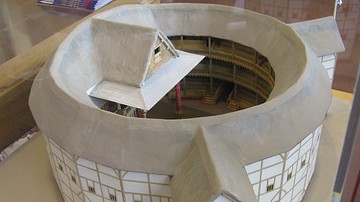
Definition
Elizabethan Theatre
Elizabethan theatre, sometimes called English Renaissance theatre, refers to that style of performance plays which blossomed during the reign of Elizabeth I of England (r. 1558-1603) and which continued under her Stuart successors. Elizabethan...
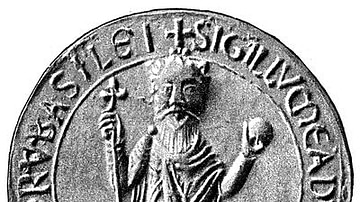
Definition
Edward the Confessor
Edward the Confessor, also known as Saint Edward the Confessor, reigned as king of England from 1042 to 1066 CE. Edward was reliant on the powerful Godwine (aka Godwin) family to keep his kingdom together but his achievements included a relatively...
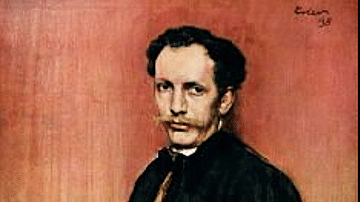
Definition
Richard Strauss
Richard Strauss (1864-1949) was a German conductor and composer of both innovative late-Romantic and Modernist music. He is best known for his symphonic poems and operas like Salome and Elektra, both of which caused a sensation. Strauss gained...
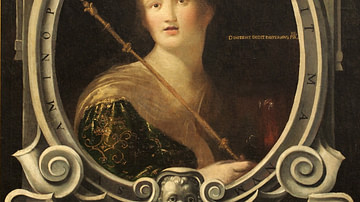
Definition
Saint Margaret of Scotland
Saint Margaret of Scotland (c. 1046-1093 CE) was, as the second wife of Malcolm III (r. 1058-1093 CE), the queen of Scotland from 1070 CE until her death in November 1093 CE. A princess of the royal house of Wessex, she brought Anglo-Saxon...
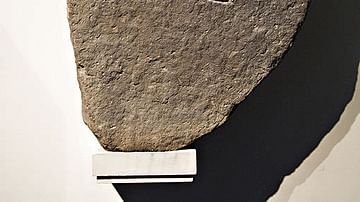
Definition
Picts
The Picts were a people of northern Scotland who are defined as a "confederation of tribal units whose political motivations derived from a need to ally against common enemies" (McHardy, 176). They were not a single tribe, nor necessarily...

Definition
Stone of Scone
The Stone of Scone (Gaelic: Lia Fail), also known as the Stone of Destiny or Coronation Stone, is a block of sandstone associated with the coronation ceremonies of the medieval monarchs of Scotland. These ceremonies were held at Scone, a...

Definition
James I of England
James I of England (r. 1603-1625), who was also James VI of Scotland (r. 1567-1625), was the son of Mary, Queen of Scots, and he unified the thrones of Scotland and England following the death of Queen Elizabeth I of England (r. 1558-1603...
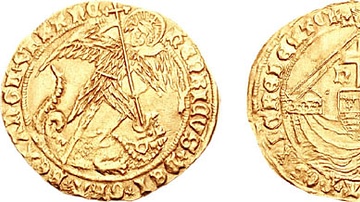
Definition
King's Evil
The king’s evil (from the Latin morbus regius meaning royal sickness), more commonly known as scrofula or medically tuberculous lymphadenitis, was a skin disease believed to be cured by the touch of the monarch as part of their inherited...
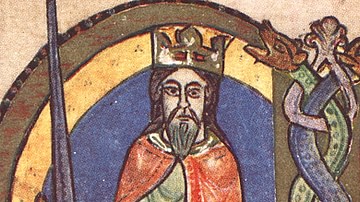
Definition
David I of Scotland
David I of Scotland reigned from 1124 to 1153 CE. Taking over from his elder brother Alexander I of Scotland (r. 1107-1124 CE), David continued to consolidate the kingdom of Scotland as a single nation, built castles and monasteries, and...
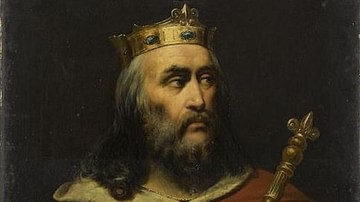
Definition
Chlothar II
Chlothar II was a Merovingian king of the Franks, who reigned from 584 to 629. He inherited the throne of Neustria as an infant, upon the assassination of his father, Chilperic I (r. 561-584). Following a long and bitter power struggle with...